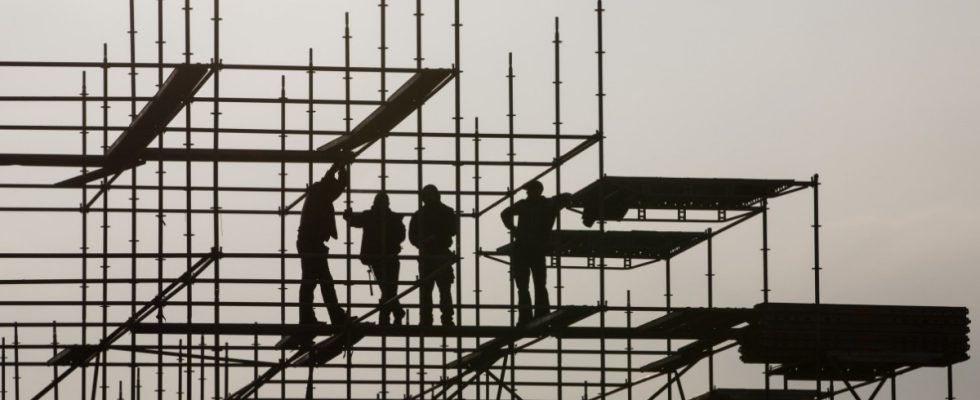The mood in the executive suites of German business hardly worsened in September. The Ifo business climate only fell slightly by 0.1 points to 85.7 points compared to the previous month, for the fifth time in a row, as the Munich Ifo Institute announced on Monday in its survey of around 9,000 managers. However, experts polled by Reuters had expected a sharper decline to 85.2 points. Although companies were more dissatisfied with current business, they were less skeptical about their prospects than before. “The German economy is stalling,” said Ifo President Clemens Fuest. At the end of 2022 and the beginning of 2023, Europe’s largest economy shrank for two quarters in a row before stagnating in the spring. Many experts also expect shrinkage for the current year as a whole.
“The gross domestic product is likely to have fallen in the third quarter,” said Ifo economic expert Klaus Wohlrabe to Reuters with a view to the summer. “The industry is struggling with falling orders from home and abroad, and the rise in interest rates worldwide is having an impact.” This dampens the demand for German goods. In the service sector, the business climate fell for the sixth time in a row, while in retail there was a slight improvement. “This was due to less pessimistic expectations,” Fuest said. However, traders are less satisfied with current business. “The construction industry remains the problem child,” said Wohlrabe. In the construction industry, the business climate indicator fell to its lowest value since January 2009.
Commerzbank’s chief economist, Jörg Krämer, also sees no all-clear: “After the previous four significant declines in a row, the trend in the Ifo index continues to point clearly downwards. This also applies to the other important leading indicators.” The economist argues that the massive increases in key interest rates in the euro area and many other countries would also indicate a recession. Another burden is the high level of uncertainty among companies about the government’s economic policy.
Krämer’s colleague from Union Investment, Jörg Zeuner, also sees reason for optimism. “Incoming orders in industry are probably just bottoming out, and savings among private households are serving as a buffer to stabilize the economy,” said the chief economist. Companies would also be somewhat more confident about their outlook again. “The worst could soon be behind us. In our view, a deep economic downturn is not to be expected.” Even if the currently elevated oil prices continue to rise in the short term, he expects inflation to fall. “The interest rate peak should now have been reached.”

